Read a summary of Sonia Sabnis’ recent lecture – “Daemon Lovers and Monstrous Pregnancy: Psyche in 20th-Century America” – on the Humanities and Fine Arts website.
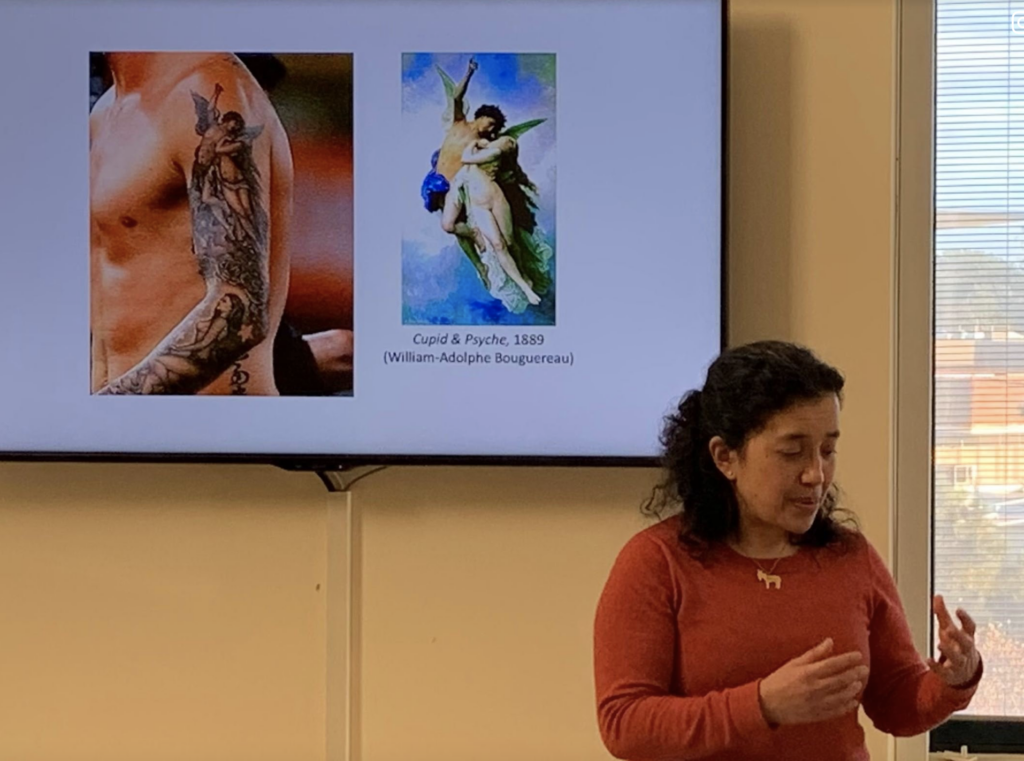
Read a summary of Sonia Sabnis’ recent lecture – “Daemon Lovers and Monstrous Pregnancy: Psyche in 20th-Century America” – on the Humanities and Fine Arts website.

The Classics Department at UCSB invites applications for a graduate opportunity fellowship to support talented scholars who come from groups historically underrepresented in Classics and who would benefit from an additional year of graduate study. The successful applicant will receive, along with regular admission to the PhD program, a seven-year funding package that includes an initial “bridge” fellowship year and six additional years of support from a combination of fellowships and TAships. During the bridge year, the Department will provide a program of study tailored to the needs and interests of the fellow, including such components as courses in Greek, Latin, or other ancient languages; directed research in the fellow’s area(s) of interest; and faculty mentorship. Prospective fellows must be citizens or permanent residents of the United State at the time of application. Applicants who wish to be considered for this fellowship should submit a regular application to our PhD program (deadline Jan. 1, 2023).
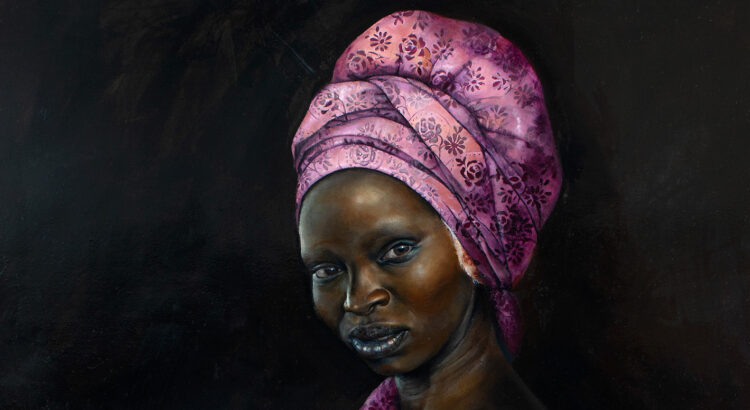
The Department of Classics is pleased to announce Harmonia Rosales: Entwined, an exhibition that presents a new and dynamic body of work by celebrated Afro-Cuban American artist Harmonia Rosales. Rosales’ interweaving of representations from ancient Greek and Yoruba mythologies invites viewers to challenge their ideas about identity and empowerment. Women and people of color, the protagonists of her canvases, assume roles of power and beauty in exquisite imaginings of ancient myths and Renaissance paintings.
The exhibition will take place from Saturday, January 8, 2022 to Sunday, March 20, 2022 at the Art, Design & Architecture Museum at the University of California, Santa Barbara.
Harmonia Rosales: Entwined is a collaboration between the artist, the Argyropoulos Chair in Hellenic Studies, the Department of Classics, and the Art, Design & Architecture Museum at the University of California, Santa Barbara.
For more information, please click here.
Image: “Oba and Her Ear.” Courtesy of the artist, © 2021 Harmonia Rosales.
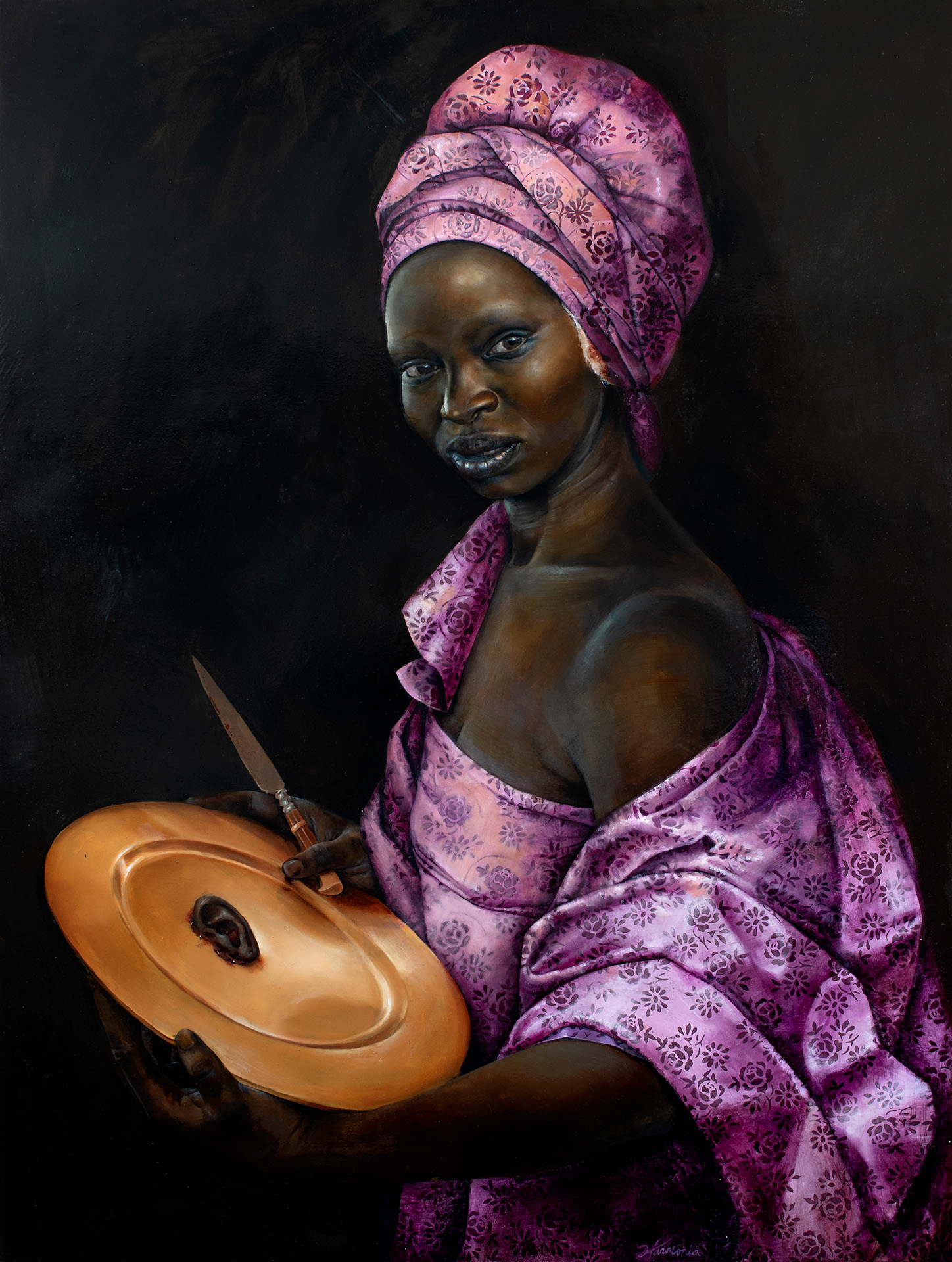
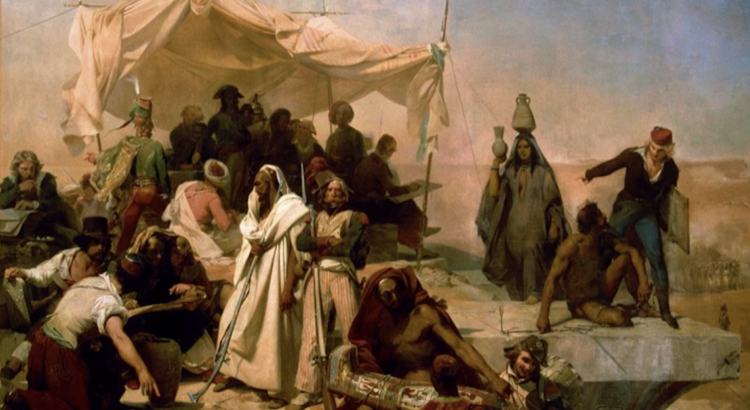
Next quarter, Prof. Dorota Dutsch (Classics) and Prof. Nuha Khoury (History of Art and Architecture) will co-teach an INT courses focused on 19th-century “antiquities.” The course will be structured around Napoleon’s invasion of Egypt and will tell the story of the invention of western modernity (as opposed both to “Antiquity” and “the Orient”) in 9 objects, ranging from Josephine’s tea-set to the Statue of Liberty.
For more information about the course, please see the flyer below. And to find out more about the courses offered by the Classics Department in Spring 2021, click here.
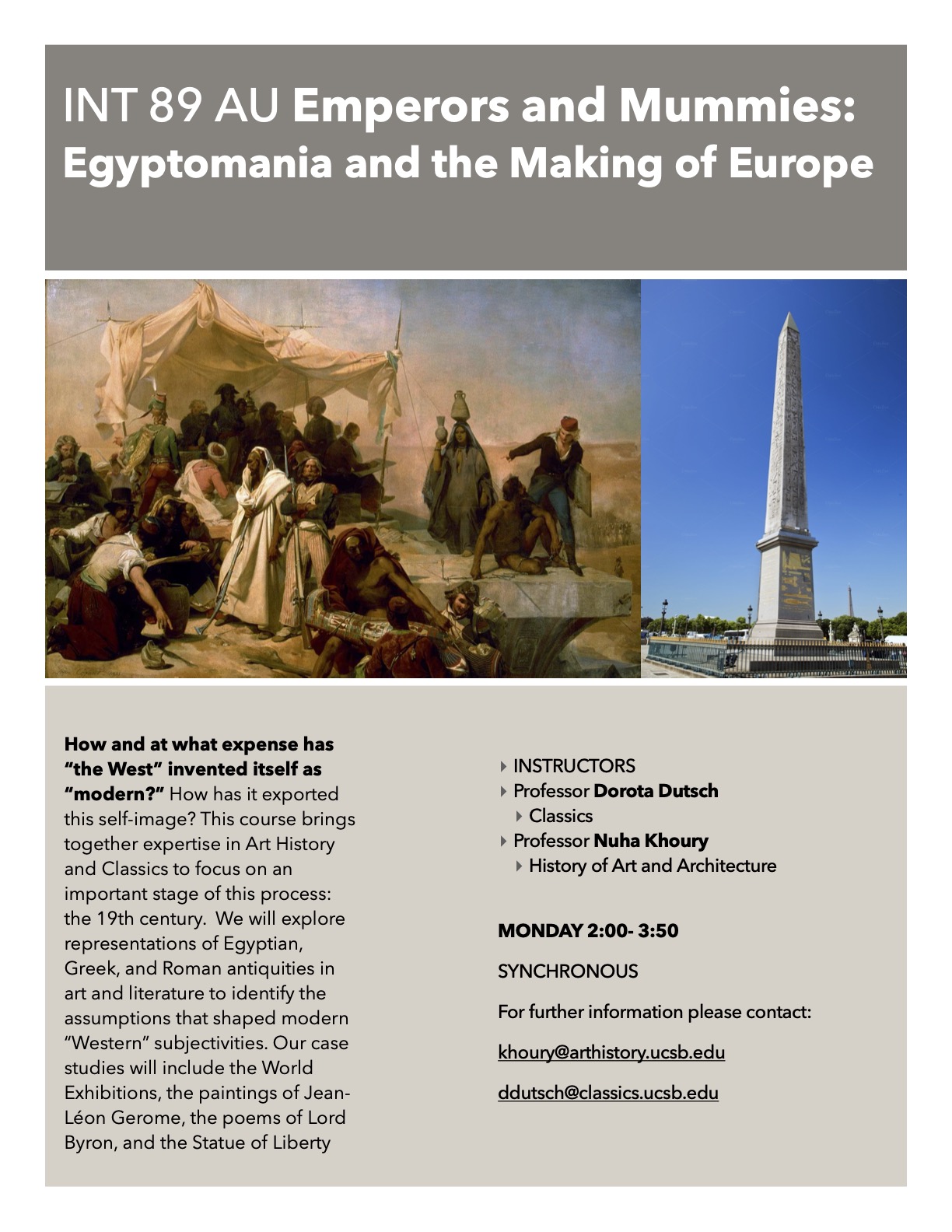
The Classics department is pleased to announce the 2019-20 winners of the Aldrich and Civitas Awards:
The winner of the Aldrich Award for Graduate Studies is Olga Faccani. During the 2019-20 academic year, Olga has made excellent progress towards completion of the degree: she has presented to the department her significant paper – titled Philia, Trauma, and the Self: Renewal of Friendship in Euripides’ “Heracles” – and passed her oral qualifying examination. Moreover, since the summer of 2019 she has been collaborating with The Odyssey Project, a theater process between youth from a juvenile detention facility in Santa Barbara county and UC undergraduate students. She has discussed this experience in a “lightning round” talk at the most recent meeting of the Social for Classical Studies in Washington, DC.
The winner of the Aldrich Award for Undergraduate Studies is Donna Blockhus. Donna, who has been invited to join the prestigious Phi Beta Kappa society, has excelled in all the classes she has taken during her undergraduate career – be they language courses, larger lectures, or more intimate seminars. She has also made a significant contribution to the life of the department by acting as librarian of the Keith Aldrich Memorial Library.
The winner of the Civitas Award is Kalina Kazmierczak. With her enthusiasm and passion for the ancient world, Kalina has been an invigorating member of our undergraduate community: she has coordinated several meetings and activities of the Classics Club, and revived the Language Cafe, which provides students with a casual setting for working on their study of Ancient Greek and Latin.
Congratulations to all of them!
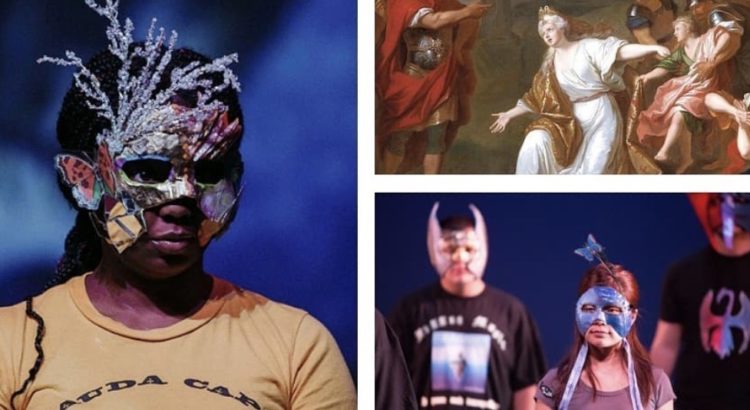
Professor Michael Morgan, who is Senior Lecturer in the Department of Theater & Dance and holds an affiliation with Classics, will be offering a groundbreaking online course this summer entitled The People’s Voice. Participants will collaborate with incarcerated female students at the Ventura Youth Correctional Facility on re-envisioning the text of the Trojan Women, an ancient Greek play by Euripides that follows the fates of the women of Troy after their city has been sacked, their husbands killed, and their families are taken away as slaves. Using digital storytelling and reading this story through a contemporary socio-political lens, students will work together as artist-activists to re-construct the tragedy and offer counter-narratives to the devastation and despair of the play’s heroines. The People’s Voice aims to broaden undergraduates’ learning experience by bringing them into a creative partnership with a marginalized population, a partnership founded on community-building and mutual respect.
The course (THTR 43/143) will run in Session G and is open to all majors. Olga Faccani, a Classics graduate student with interests in Greek drama and public humanities, will serve as Teaching Assistant.
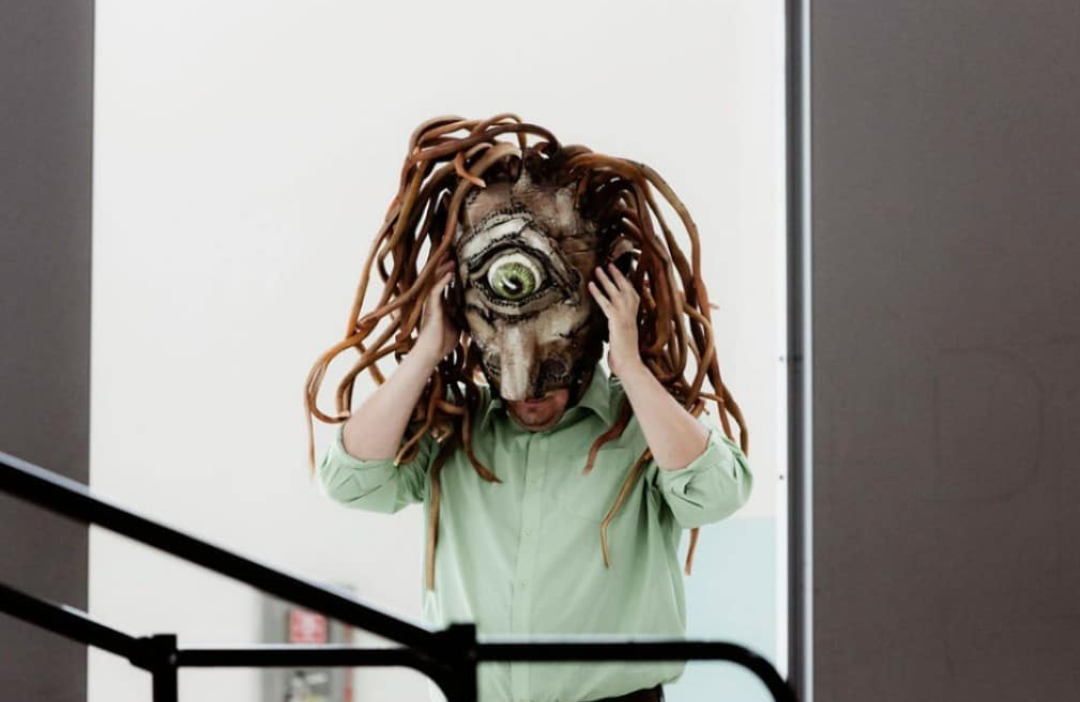
The People’s Voice expands on Professor Morgan’s paradigm-shifting The Odyssey Project, a collaborative theater process between incarcerated youth and undergraduates in which participants use Homer’s Odyssey to explore the mythic elements in their lives to and reconstruct the epic poem in their own voices (https://odyssey.projects.theaterdance.ucsb.edu). The Odyssey Project is featured in an interactive web documentary, Inside the Odyssey Project, directed by Luc Walpoth (https://www.insidetheodysseyproject.com).
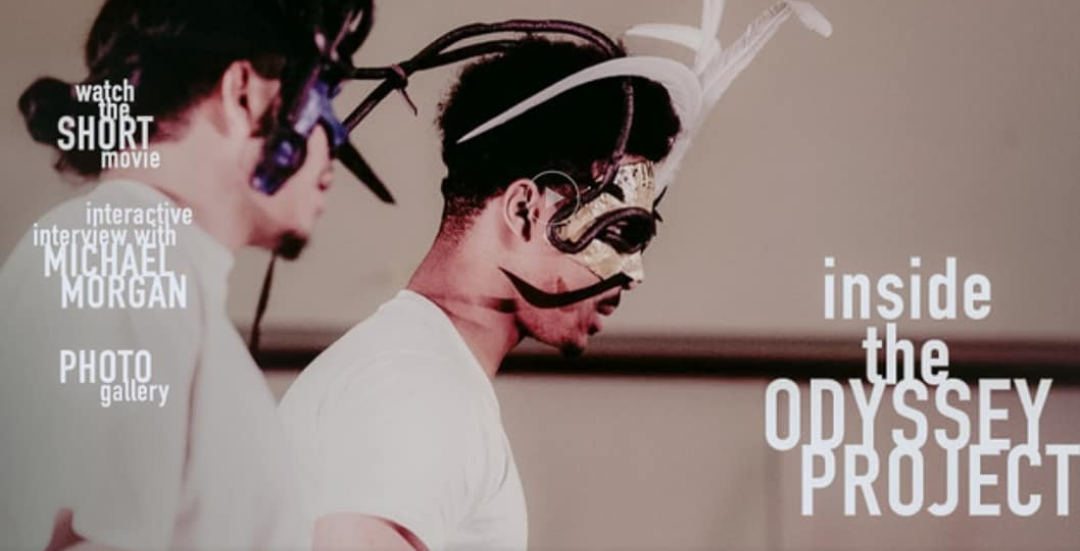
The Classics department is pleased to announce the 2018-19 winners of the Aldrich and Civitas Awards:
The winner of the Aldrich Award for Graduate Studies is Julio Vega. During this academic year, Julio has not only shown pedagogical excellence as a teaching assistant; in his significant paper, titled Animating Nature: Trees and Death in the “Iliad,” he has also demonstrated considerable scholarly maturity and originality.
The winner of the Aldrich Award for Undergraduate Studies is Miguel Sanchez Morquecho. In all the courses he has attended, Miguel has distinguished himself for his linguistic ability and his intellectual curiosity.
The winners of the Civitas Award are Donna Blockhus and Christina Barrett. Donna and Christina have been tireless advocates for Classics on the UCSB campus, as well as energizing members of our Classics Club.
Congratulations to all of them!
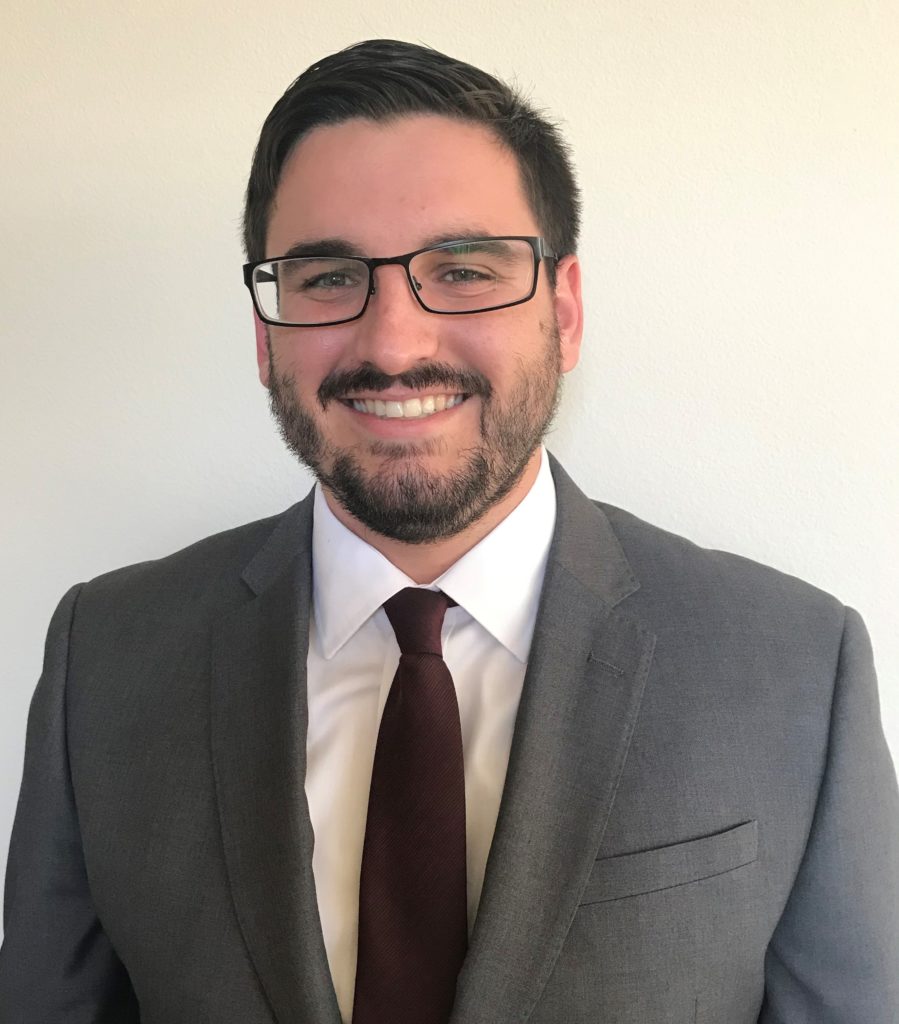
Vincent Shepherd graduated from UCSB in 2017 with a BA in Classics and History. He is currently a second-year law student at UC Irvine School of Law, where he serves as a staff editor for the UCI Law Review. Vincent has externed at the US Bankruptcy Court in Riverside and will be a Summer Associate at Bryan Cave Leighton Paisner this summer. During a recent visit to campus, he reflected on how studying Classics has helped him succeed.
How did you decide to pursue a career in law?
I determined I wanted to go to law school during my sophomore year of undergrad. I was weighing career options at that time and I wanted to do something in which I could best apply my undergraduate majors in the professional world. Law school was the perfect option for me because it gave me the opportunity to apply many of the skills developed in undergrad towards a career with direct real-world impact.
What aspect of Classics was most helpful during the application process?
Studying Classics requires a lot of logical analysis and close reading. Latin in particular gave me some practice in detail-oriented analysis, which helped me on different portions of the LSAT.
And now that you’re in law school?
Studying Latin helped me develop the same skills used in legal analysis. When translating, you are asked analyze a passage and translate it according to the different grammatical rules. Likewise, when doing legal analysis, you have a set of rules which you are then asked to apply to a set of particular facts. Similar to how changing one letter in a sentence can yield a different translation, one minor change in a fact pattern can yield an entirely different conclusion. I think these analytical skills developed from studying Latin directly benefit me the most.
How often do you encounter Latin these days?
I might see Latin once or twice a week, depending on what classes I am taking. It helps to know what an antiquated legal doctrine translates to in order to understand what the law is, or how it got to what it is today.
What advice would you give to Classics majors who are planning to apply to law school?
Focus on your undergraduate studies and enjoy your Classics courses while you are in them. Grades are a large part of the application process. So, the more you engage in your studies, the better grades you will likely get, and the better you will likely do in the application process. The LSAT is the other major part of the application process, but you will have time to study that over summer, or when you are no longer in school if you take a gap year. Classics is a fun and interesting major. So, while you are in undergrad enjoy and engage in the material.
What advice would you give to Classics majors who are thinking about law school but aren’t quite sure?
If you are unsure whether being a lawyer is right for you, try a summer legal internship. This will give you some insights into what it’s like to be a lawyer and help you make that determination. Also, you do not need to rush into law school directly from undergrad. Many people take gap years before deciding to pursue a legal career. Take your time and think about if a legal career is right for you. However, as a Classics major, you are developing skills that will situate you for success in law school.
Vincent is available to mentor UCSB Classics majors who are interested in law school. Please e-mail Prof. Rose MacLean (maclean@classics.ucsb.edu) for more information.
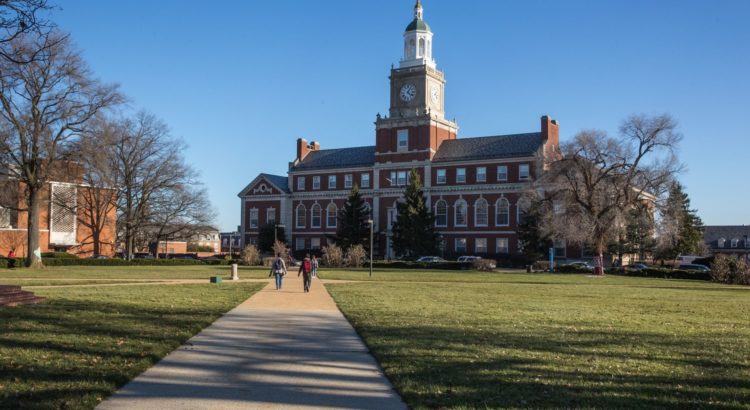
The Classics Department has been awarded a UC-HBCU grant to create a summer program bringing students from Howard University to study at UCSB and Athens, Greece, this coming summer. This partnership between UCSB and Howard University was forged to promote diversity in graduate education in the UC system. Brice Erickson is the director of the program.